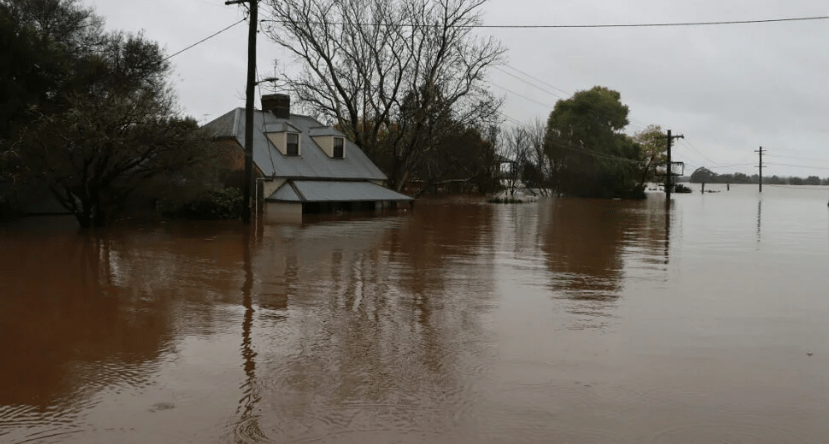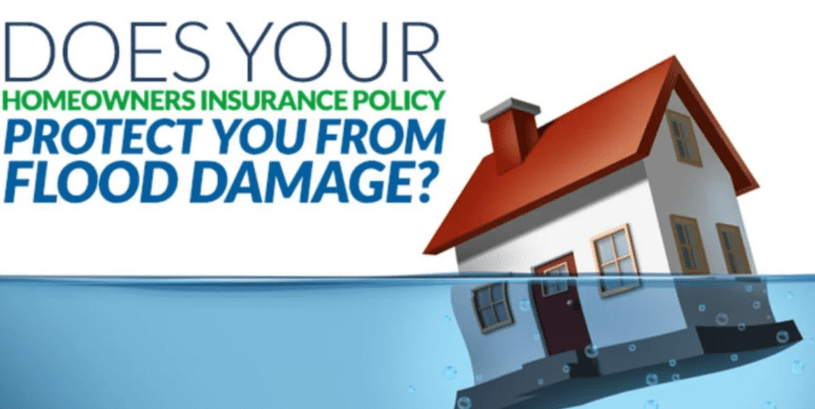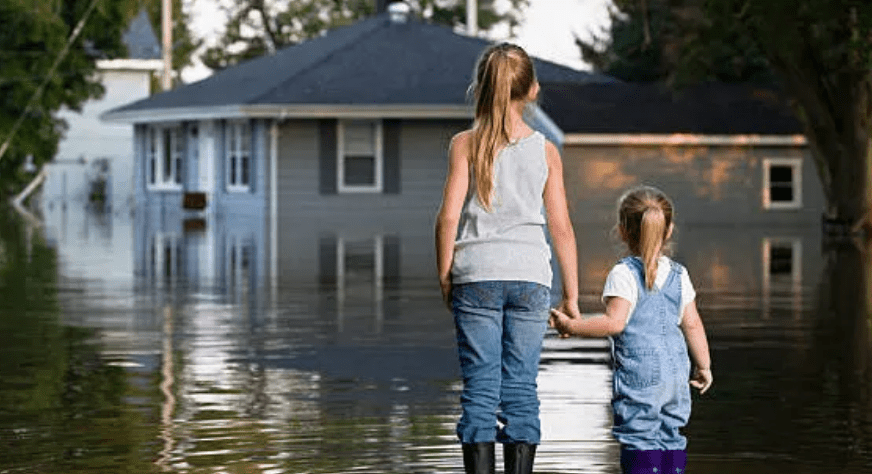Floods are among the most common and devastating natural disasters, causing significant damage to properties and affecting millions of people worldwide each year. As a result, homeowners and renters alike may find themselves asking, “What is flood insurance, and should I buy it?” This article delves into the specifics of flood insurance, its importance, and whether it is a necessary investment for you.
What Is Flood Insurance?
Flood insurance is a type of property insurance that specifically covers losses and damages caused by flooding. Unlike typical homeowners insurance policies that cover risks like fire, theft, or wind damage, most standard policies do not include coverage for flooding. This means that without a separate flood insurance policy, homeowners could be left to pay out-of-pocket for any damages caused by floods.
Flood insurance policies are typically offered by private insurance companies or through government-backed programs, such as the National Flood Insurance Program (NFIP) in the United States. These policies can cover both the building itself and its contents, offering protection against a wide range of flood-related damages, including structural damage, loss of personal belongings, and other property damage.

How Does Flood Insurance Work?
Flood insurance works by providing financial protection to policyholders against the specific risk of flood damage. Policies generally have two main components:
- Building Property Coverage: This covers the physical structure of your home, including the foundation, electrical systems, plumbing systems, built-in appliances, and permanently installed carpeting and paneling. The coverage limit for this component is typically up to $250,000 under the NFIP, but private insurers may offer higher limits.
- Personal Property Coverage: This covers the contents of your home, such as furniture, electronics, clothing, and other personal belongings. The NFIP provides coverage up to $100,000 for personal property, with higher limits potentially available through private insurers.
When a flood occurs, policyholders must file a claim with their insurance provider, who will assess the damage and provide compensation based on the terms of the policy. It’s important to note that flood insurance policies usually come with a waiting period of 30 days from the date of purchase before coverage becomes effective. Therefore, it is crucial to plan ahead and not wait until a flood is imminent to buy coverage.
Why Isn’t Flood Damage Covered by Homeowners Insurance?
One common misconception is that standard homeowners insurance policies automatically cover flood damage. However, this is not the case. Homeowners insurance typically covers water damage that is sudden and accidental, such as a burst pipe or a leaking roof, but it does not cover damage resulting from external flooding.
The reason behind this exclusion lies in the nature and scale of flood damage. Floods can cause widespread devastation, impacting entire communities simultaneously. The potential financial liability for insurers would be enormous if flood damage were covered under standard policies. As a result, flood insurance was developed as a separate product to manage this risk more effectively.
Who Needs Flood Insurance?
Determining whether you need flood insurance largely depends on your location and the specific flood risk in your area. Here are some key factors to consider:
- Living in a High-Risk Flood Zone: If you live in a high-risk flood zone, as defined by the Federal Emergency Management Agency (FEMA) or a similar organization, flood insurance is highly recommended. High-risk areas, also known as Special Flood Hazard Areas (SFHAs), are more likely to experience floods, and property owners in these areas are often required to purchase flood insurance as a condition of their mortgage.
- History of Flooding: Even if you don’t live in a designated high-risk area, it’s essential to consider the historical flood data of your location. If your property has been affected by floods in the past, or if you live near bodies of water such as rivers, lakes, or coastal areas, flood insurance could be a wise investment.
- Changing Weather Patterns: Climate change has led to increased occurrences of extreme weather events, including heavy rainfall and hurricanes, which can result in unexpected flooding. Areas that were previously considered low-risk may now face higher risks, making flood insurance a valuable safety net.
- New Development and Urbanization: Rapid urbanization and new developments can alter natural water drainage patterns, increasing the likelihood of flooding. If you live in a rapidly developing area, the risk of flooding could be higher than you might think.
- Peace of Mind: Even if you’re not in a high-risk area, the peace of mind that comes with knowing your home and belongings are protected can be invaluable. Floods can happen anywhere, and having insurance ensures you are financially prepared.

The Benefits of Flood Insurance
Flood insurance offers several benefits that make it a worthwhile consideration:
- Financial Protection: The primary benefit of flood insurance is financial protection. Floods can cause extensive damage to homes, often leading to costly repairs or complete rebuilding. Without flood insurance, homeowners would need to cover these expenses out-of-pocket, which can be financially devastating.
- Coverage for Personal Belongings: Flood insurance not only covers the structure of your home but also your personal belongings. This includes furniture, electronics, clothing, and more. Replacing these items after a flood can be incredibly costly, but flood insurance helps alleviate that burden.
- Compliance with Mortgage Requirements: For those living in high-risk flood areas, many mortgage lenders require flood insurance as a condition of the loan. Having a policy in place ensures compliance with these requirements, avoiding potential legal and financial issues.
- Faster Recovery: In the aftermath of a flood, having insurance allows homeowners to receive compensation more quickly, facilitating faster repairs and recovery. This can help get your life back to normal sooner rather than later.
- Reduction of Stress and Anxiety: Knowing that you are covered in the event of a flood can significantly reduce stress and anxiety, particularly during severe weather events. This peace of mind is invaluable and can make a challenging situation more manageable.
Should You Buy Flood Insurance?
Deciding whether to buy flood insurance ultimately depends on your individual circumstances, including your location, flood risk, financial situation, and peace of mind. Here are some questions to consider when making your decision:
- What Is My Flood Risk?: Assess the flood risk of your area using flood maps provided by FEMA or local authorities. Consider both historical flood data and the impact of changing weather patterns. If you’re in a high-risk area, flood insurance is likely necessary.
- Can I Afford Potential Losses?: Evaluate your financial situation and consider whether you could afford to repair or replace your home and belongings if a flood occurred. If the answer is no, flood insurance provides essential financial protection.
- What Is My Property’s Value?: The higher the value of your property and its contents, the more you have to lose in a flood. Investing in flood insurance can protect your valuable assets.
- What Are My Lender’s Requirements?: If you have a mortgage, check with your lender to see if flood insurance is required. Non-compliance could result in significant financial and legal consequences.
- How Important Is Peace of Mind?: Consider how much value you place on the peace of mind that comes with knowing you’re protected. Flood insurance can provide a sense of security, especially during unpredictable weather events.
Conclusion
Flood insurance is a vital safeguard for homeowners and renters, offering protection against one of the most common and costly natural disasters. While it may not be necessary for everyone, those living in high-risk areas, with a history of flooding, or who simply want the peace of mind that comes with being prepared, should strongly consider purchasing a policy. By understanding your flood risk and weighing the potential financial impacts of flood damage, you can make an informed decision that best suits your needs and protects your home and family.
Flood insurance may seem like an added expense, but when weighed against the potential costs of flood damage, it can be a sound investment in your home’s and financial future.









It contains fastidious material.|I think the admin of this website is actually working hard in favor of his site,
atp8nx
qvxsua
dtvajp
49v7cr
This is a must-read for anyone interested in this topic.I’ve created a complementary resource that you might find useful.